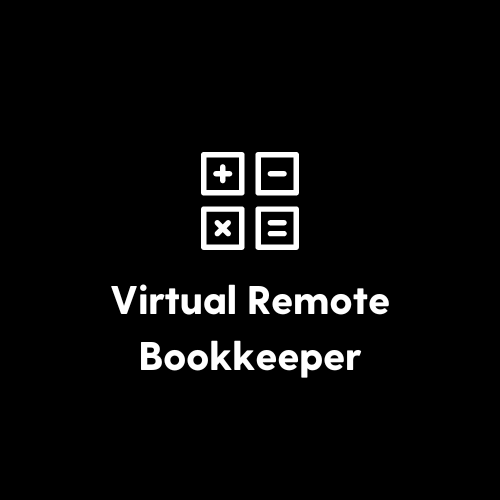
In today’s fast-paced and dynamic business environment, bookkeeping is a crucial element of business operations. Every business, whether small or large, needs to maintain accurate and up-to-date financial records. However, when it comes to managing these financial records, businesses often find themselves torn between two main options: Virtual Bookkeeping and In-House Bookkeeping. Both options have their distinct advantages and challenges, and the decision of which one to choose depends on several factors such as the size of the business, its budget, and its specific needs.
In this blog, we will delve into the key differences between virtual and in-house bookkeeping, exploring the advantages and disadvantages of both options to help you make an informed decision. Let’s explore which bookkeeping solution might be best suited for your business.
What is In-House Bookkeeping?
In-house bookkeeping refers to the practice of employing a dedicated, full-time bookkeeper or accounting team within the company. These professionals work on-site, directly managing the company’s finances, and handling tasks such as bookkeeping, tax filing, payroll, and financial reporting.
Pros of In-House Bookkeeping
- Direct Oversight and Control: Having a team working on-site allows business owners to have direct supervision over the bookkeeping process. They can monitor the progress and ensure everything is done according to the business’s standards.
- Immediate Communication: Since the bookkeepers are in-house, communication is often faster and more direct. If any questions or issues arise, you can address them in person, leading to quick resolution.
- Tailored to Your Business Needs: An in-house team can develop a deeper understanding of your business’s unique needs, especially in specialized industries. They can tailor the bookkeeping processes to fit your operations and goals more efficiently.
- Data Security and Confidentiality: For businesses that handle sensitive financial data, having an in-house team may offer an additional layer of security, as you have full control over the data access and storage.
Cons of In-House Bookkeeping
- High Costs: One of the biggest drawbacks of in-house bookkeeping is the expense. Employing a full-time bookkeeper or accounting team can be costly. This includes salaries, benefits, office space, and training costs.
- Limited Flexibility: In-house bookkeepers generally work during office hours and may not be available for urgent tasks outside of these times. This may limit flexibility if your business operates during non-traditional hours.
- Employee Turnover: Hiring and retaining qualified bookkeepers can be challenging. If your in-house team experiences turnover, it could lead to disruptions in your bookkeeping processes.
- Increased Liability: If the in-house bookkeeper makes an error, the responsibility for correcting mistakes falls solely on your business. This can create additional stress and potential financial risk.
What is Virtual Bookkeeping?
Virtual bookkeeping is the practice of outsourcing bookkeeping tasks to a professional who works remotely. Virtual bookkeepers are independent contractors or part of a bookkeeping firm, providing services to businesses without the need for on-site presence.
Pros of Virtual Bookkeeping

- Cost-Effectiveness: Virtual bookkeeping services are often more affordable than hiring in-house employees. You can typically save money on salaries, office space, benefits, and equipment costs. For small businesses, this can be a significant advantage.
- Scalability and Flexibility: Virtual bookkeeping services offer greater flexibility. Whether your business needs support during peak tax seasons or has fluctuating bookkeeping demands, virtual bookkeepers can scale services to match your needs. They can also offer services outside of traditional office hours, providing more flexibility to your business.
- Expertise and Specialization: Virtual bookkeeping companies often have a team of professionals with diverse expertise. They are equipped with the latest technology and tools and can offer specialized services, such as tax preparation, financial analysis, and payroll processing. This allows businesses to benefit from expert advice without hiring multiple specialists.
- Access to Advanced Technology: Virtual bookkeepers often use cutting-edge accounting software and cloud-based systems that ensure data is secure, accessible, and up-to-date. For instance, Zoho Bookkeeping services available at Virtual Remote Bookkeeper can provide you with all the essential tools you need for efficient financial management.
- Reduced Risk and Liability: Outsourcing bookkeeping to a professional service reduces the risk of errors or fraud. Many virtual bookkeeping services have strong quality control measures in place and carry insurance to mitigate financial risks.
Cons of Virtual Bookkeeping
- Less Control and Oversight: Virtual bookkeeping means you don’t have direct oversight of the team. This can be a disadvantage for businesses that prefer to have immediate access to their financial information and monitor every step of the process.
- Communication Barriers: Working remotely can sometimes lead to delays or miscommunication. While tools like video calls, emails, and chat services help bridge the gap, there may still be instances when communication takes longer than it would with an in-house team.
- Security Concerns: While virtual bookkeeping services use secure online platforms, businesses handling highly sensitive financial data may still feel uncomfortable sharing it with external contractors. However, virtual bookkeeping services often have strict data protection protocols in place to minimize these risks.
Comparing Virtual and In-House Bookkeeping
| Factor | In-House Bookkeeping | Virtual Bookkeeping |
| Cost | High, due to salaries, benefits, and overhead costs | More affordable, with no need for office space or full-time employees |
| Control and Oversight | Direct and immediate control over the bookkeeping process | Less oversight, though remote tools can allow for monitoring progress |
| Scalability | Limited flexibility; may need to hire more staff as the business grows | Highly scalable, can adjust based on business needs |
| Expertise | Limited to the skills of the in-house team | Access to a team of experts with specialized knowledge |
| Security | Full control over sensitive data | Depends on the virtual bookkeeping service; typically secure |
| Availability | Limited to office hours | 24/7 availability depending on the service |
When Should You Choose Virtual Bookkeeping?
- For Cost-Conscious Businesses: If you’re a small or mid-sized business looking to save money without sacrificing quality, virtual bookkeeping is an excellent choice. With a lower overhead cost and scalable services, you can access high-level expertise without the added financial strain of hiring full-time employees.
- For Businesses That Need Flexibility: If your business has fluctuating bookkeeping needs or operates outside of traditional working hours, virtual bookkeeping can provide the flexibility you require. You can adjust your services based on your business’s schedule and financial cycles.
- For Access to Technology and Tools: Virtual bookkeeping services often offer access to modern accounting tools, like Zoho Bookkeeping, that streamline financial processes. These tools can improve your bookkeeping efficiency, reduce errors, and ensure that your financial records are always up to date.
- For Businesses Looking for Expert Support: If your business needs specialized support such as tax preparation or financial planning, virtual bookkeeping services can connect you with professionals who have the knowledge and experience to meet these needs.
When Should You Choose In-House Bookkeeping?
- For Larger Businesses: If your business has complex bookkeeping needs or requires extensive financial reporting, in-house bookkeeping may be more appropriate. Having a dedicated team can ensure that all aspects of your finances are managed efficiently.
- For Businesses that Value Direct Control: If you prefer to have direct oversight and control over your bookkeeping process, an in-house team will give you more hands-on management. You can communicate with them in person and ensure that everything is done according to your business standards.
- For Businesses with Sensitive Financial Data: In-house bookkeeping might be the better option if you handle sensitive financial data and want to maintain full control over your records. However, virtual bookkeeping services also offer secure platforms to manage your data remotely.
Conclusion: Which Option is Right for You?
Choosing between virtual and in-house bookkeeping ultimately depends on your business’s size, budget, and specific needs. If you’re a small to medium-sized business seeking a cost-effective, scalable, and flexible solution, virtual bookkeeping may be the right choice for you. On the other hand, if you’re a larger business or require more control over your financial processes, in-house bookkeeping might be more suitable.
If you are considering virtual bookkeeping, explore the various services provided by Virtual Remote Bookkeeper and see how they can help streamline your financial processes. If you’re ready to take the next step, don’t hesitate to reach out via our Contact Us page.
For more insights on how virtual bookkeeping can benefit your business, check out our other blog posts.


